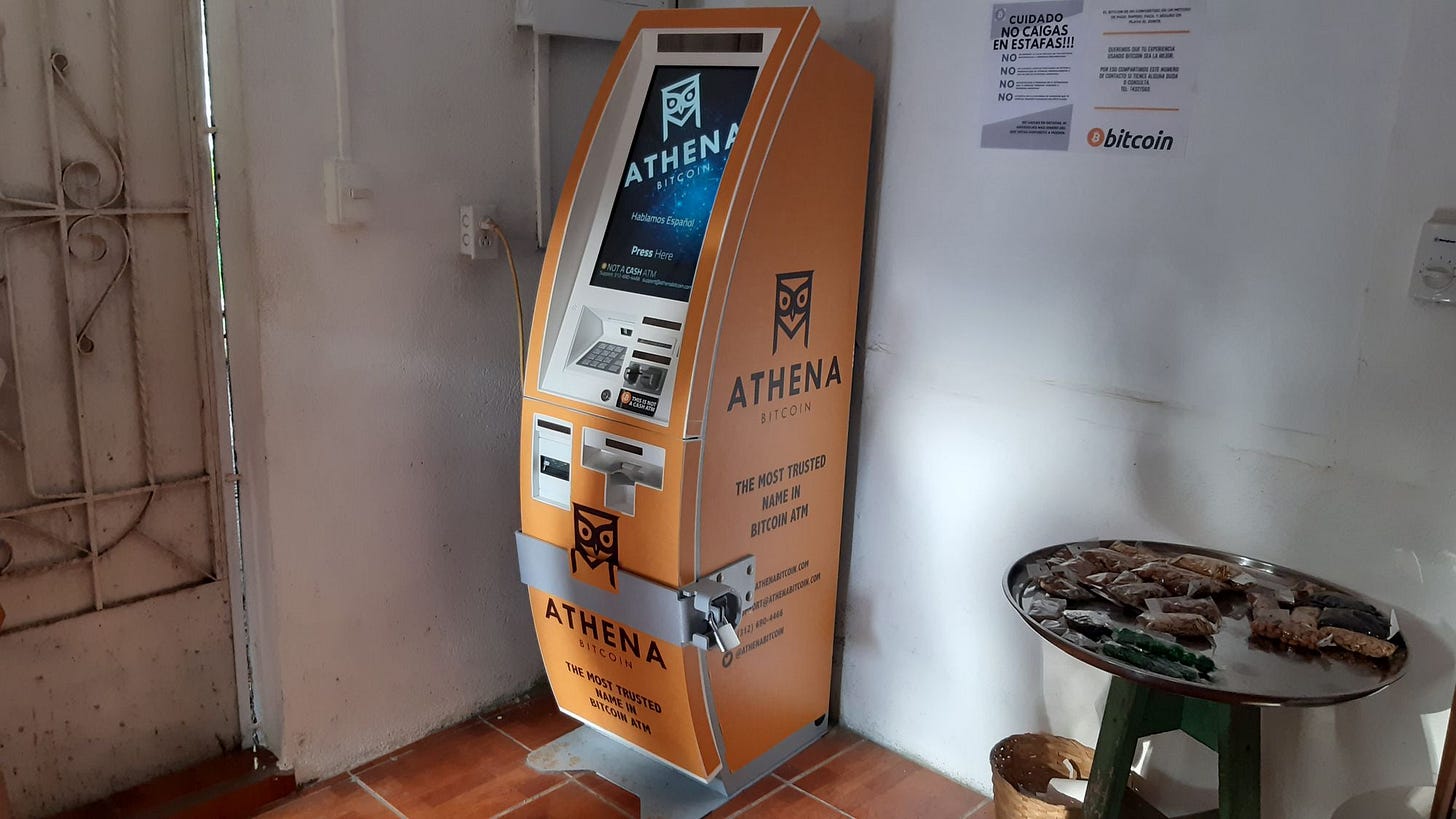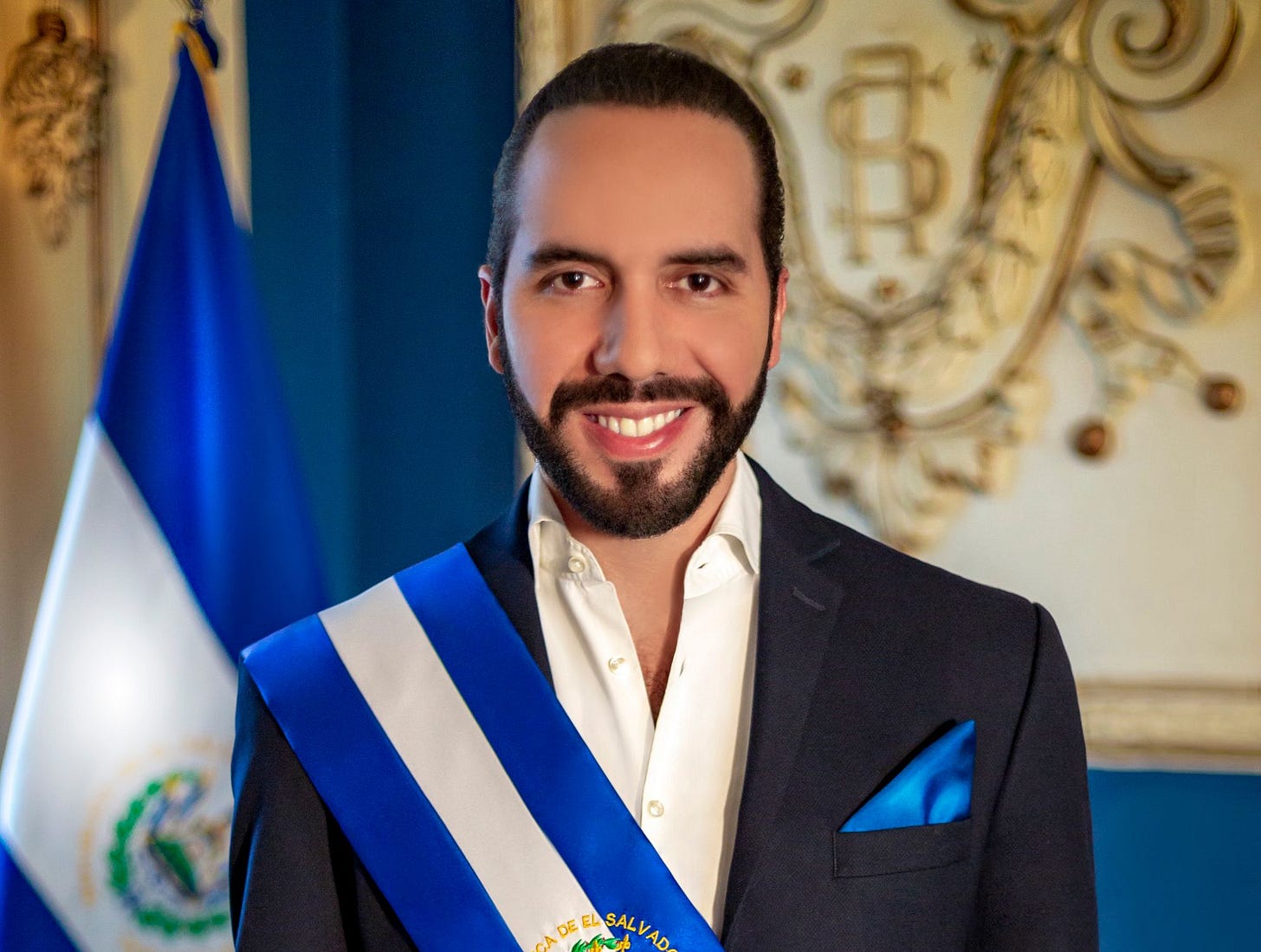Why El Salvador made Bitcoin an official currency
There's a reason President Nayib Bukele announced his Bitcoin initiative in Miami.
This week El Salvador became the first nation in the world to make Bitcoin an official currency. Under a law that passed in June and took effect on Tuesday, Bitcoin is now one of El Salvador’s two official currencies alongside the US dollar.
The law maintains the US dollar as the unit of account, so most debts, wages, and tax calculations will continue to be dollar-based. But the law controversially requires merchants in El Salvador to accept bitcoins for everyday transactions.
To speed adoption, the government has launched an official Bitcoin payment app called Chivo and is installing a network of Bitcoin ATMs. The rollout has been bumpy. On Tuesday, the Chivo app went offline for several hours so the government could upgrade the infrastructure behind it. The Bitcoin initiative has also attracted some angry protests.
“This is a currency that’s not going to work for pupusa vendors, bus drivers or shopkeepers,” one Salvadoran told Al Jazeera.
Supporters hope that mandating acceptance of Bitcoin will give it the push it needs to become a mainstream payment technology in El Salvador. The majority of Salvadorans lack bank accounts, so widespread Bitcoin adoption could allow many more people to make electronic payments.
But it’s not clear if forcing merchants to adopt Bitcoin will actually help people who lack banking services. Bitcoin requires Internet access, which is spotty in many parts of El Salvador. And Bitcoin may prove too complex and cumbersome for everyday use.
At a minimum, the announcement has made a splash on the world stage and is likely to lure some wealthy bitcoin enthusiasts to the Latin American country. That could generate significant tourism revenue and business investment for El Salvador.
A dubious case for Bitcoin in El Salvador
Salvadoran president Nayib Bukele chose an unorthodox venue to announce the new policy: the Bitcoin 2021 conference in Miami. Specifically, the news was announced during an emotional and profanity-laden address by Jack Mallers, the CEO of a Bitcoin payment startup called Strike. Mallers served as the warm-up act before President Bukele addressed the crowd by recorded video.
Mallers began his talk by attacking the US Federal Reserve.
“The large-scale printing of dollars by the Federal Reserve, has an unintended spillover that’s drastically impacting the quality of life of those less privileged and those that need help in developing and emerging markets,” Mallers said.
Mallers didn’t elaborate on this point, and it’s hard to figure out what he means. El Salvador has a dollarized economy, so it’s certainly possible for easy money in the US to cause harmful inflation in El Salvador. But the value of bitcoins is far more volatile than the dollar. On Tuesday morning, for example, it lost 12 percent of its value in a single hour—more than the dollar has lost in the last four years.
Mallers also offered a more practical argument for adopting Bitcoin. He noted that remittances account for more than 20 percent of El Salvador’s GDP and claimed that “fees can be upwards of 50 percent” for money transfers to El Salvador.
But Mallers didn’t provide a citation for his “upwards of 50 percent” claim, and as far as I can tell it’s not accurate. The World Bank estimates that the average cost to send $200 from the United States to El Salvador is around 2.9 percent, with smaller fees for larger amounts.
And of course, sending money using Bitcoin isn’t free. A recent innovation called Lightning has lowered the cost and time it takes to send bitcoins from one person to another. But anyone wanting to send bitcoins must first acquire bitcoins. The cost to do that—for example, via a Bitcoin ATM—can easily rival the 2.9 percent average fee to make a conventional money transfer to El Salvador.
A savvy tourism strategy

Bukele’s own speech was rather vague about how Bitcoin would help El Salvador. He said that Bitcoin would help make El Salvador “a country for the future” and “will generate jobs and help provide financial inclusion to thousands outside the formal economy.”
But it’s telling that Bukele chose to announce the initiative in English, at a Bitcoin conference in the United States, rather than addressing a domestic audience. One of his goals seems to be to get Bitcoiners around the world—some of whom are quite wealthy—to visit El Salvador and start businesses there.
One inspiration for El Salvador’s new Bitcoin plan was El Zonte, an El Salvador beach town that has become known as “Bitcoin Beach.” A few years ago, a wealthy, anonymous donor distributed free bitcoins to around 500 Salvadoran families in El Zonte. That persuaded some local businesses to start accepting Bitcoin. The project attracted attention in the Bitcoin press, which kicked off a virtuous circle: El Zonte’s reputation as a Bitcoin Mecca attracted vacationing Bitcoin enthusiasts, which created still further incentives for businesses to accept Bitcoin.
Now Bukele seems to be trying to expand the El Zonte experiment up to a national scale. There are thousands of people around the world with significant Bitcoin wealth. Many of them might want to spend their wealth on nice vacations, and would enjoy the ability to pay for their travels directly with bitcoins. A smaller number might be sufficiently footloose and ideologically motivated to relocate to the world’s most Bitcoin-friendly jurisdiction. A few run cryptocurrency-related businesses substantial enough to need offices around the world. If your company needs a Latin American office, why not put it in El Salvador?
And to be clear, there’s no reason to think Bukele’s motivations are cynical. Bloomberg reports that Bukele has owned bitcoins for years. I assume Bukele himself sincerely believes that cryptocurrency is the future of the global financial system. If that turns out to be true, then he may be setting El Salvador up to be at the forefront of an important technological trend.
Even if cryptocurrency doesn’t turn out to have such a bright future in the long run, positioning El Salvador as the world’s most Bitcoin-friendly jurisdiction might be a savvy tourism and business development strategy.
At the same time, you can see why this might rub some Salvadorans the wrong way. Bukele’s experiment will impose real costs on small shopkeepers who may not be in the tourism business and may never see significant Bitcoin business.
Domestic critics have faulted the government’s new Chivo platform for a lack of transparency and accountability. And some financial analysts have warned that the already indebted El Salvador can’t spare the hundreds of millions of dollars Bukele is planning to spend on the bitcoin project.
El Salvador’s already high borrowing costs have risen higher this week as El Salvador launched its cryptocurrency experiment. Though it’s not clear if that reflects bond market concerns about the bitcoin initiative, or about the broader constitutional crisis the country is going through right now: Last week, El Salvador’s Supreme Court, which was stocked with Bukele loyalists earlier in the year, ruled that Bukele could run for re-election even though the constitution prohibits presidents from being re-elected to consecutive terms.


